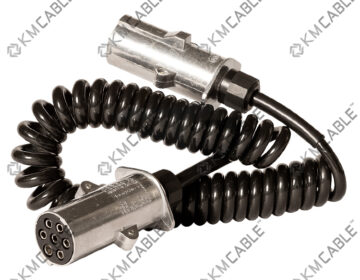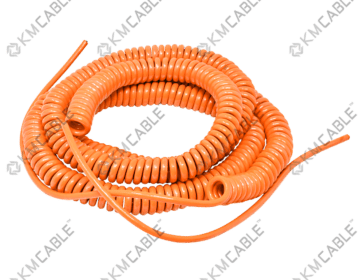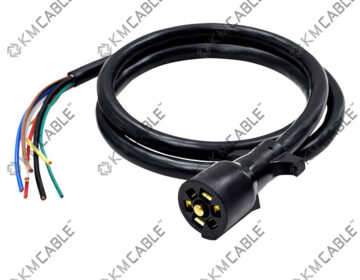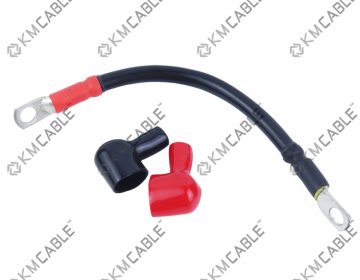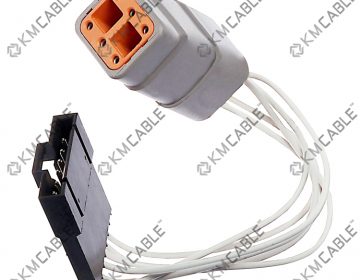No products in the cart.
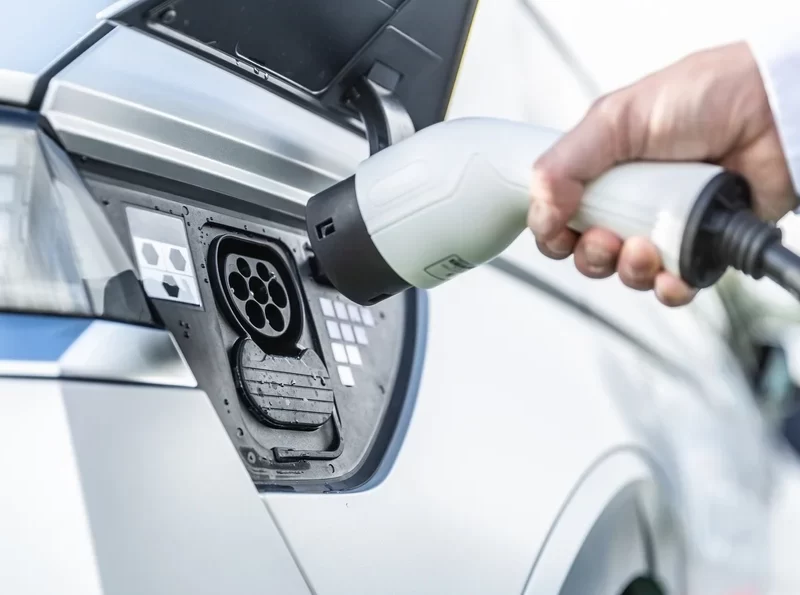
As electric vehicles (EVs) become increasingly popular, the demand for efficient and reliable charging infrastructure continues to grow. One crucial component of this infrastructure is the EV charging cable. In this article, we will explore the different types of EV charging cables, their compatibility with electric vehicles, and the relevant standards associated with EV charging.
What cable is used for EV charging?
Electric vehicles typically utilize special charging cables designed for their specific charging requirements. These cables are responsible for transmitting the electricity from the charging station to the vehicle’s battery. The most common types of cables used for EV charging include Type 1 (J1772), Type 2 (Mennekes), CHAdeMO, and CCS (Combined Charging System).
Are all EV charging cables the same?
No, not all EV charging cables are the same. The type of cable required for EV charging depends on the specific charging standard supported by the vehicle. Different countries and regions often adopt varying standards, which can impact the type of charging cable needed for efficient and safe charging.
Which cables are used in electric vehicles?
The choice of charging cable in an electric vehicle depends on its compatibility with the charging standard supported by the vehicle. Type 1 (J1772) cables are commonly used in North America and Japan, while Type 2 (Mennekes) cables are popular in Europe and many other regions. CHAdeMO and CCS cables are often used for DC fast charging, providing higher charging speeds.
What is a Type 2 EV charging cable?
The Type 2 EV charging cable, also known as the Mennekes connector, is widely adopted in Europe and many other regions as a standard charging option. It features a seven-pin connector and is designed for both alternating current (AC) and direct current (DC) charging. Type 2 cables provide additional safety features, such as the ability to detect ground faults and control the charging process.
What is the standard EV charging cable?
There isn’t a single standard EV charging cable that applies universally. The choice of the standard charging cable depends on the geographic region and the charging infrastructure available. However, Type 2 (Mennekes) cables are commonly regarded as the standard in many European countries due to their compatibility with a wide range of electric vehicles.
What cable is used for EV chargers?
EV chargers are typically equipped with compatible charging cables that adhere to the specific charging standard supported by the charger. For example, a charger supporting Type 2 (Mennekes) standard would come with a Type 2 charging cable attached, enabling users to connect their electric vehicles to the charger seamlessly.
Are EV charging connectors standardized?
Yes, EV charging connectors are standardized to ensure compatibility between electric vehicles and charging stations. These standards ensure that EVs can be charged safely and efficiently across different charging networks. The most widely recognized standards include the IEC 62196 (Type 1 and Type 2) and IEC 61851 (for communication and control protocols).
What is the difference between CCS1 and CCS2?
CCS, which stands for Combined Charging System, is a fast-charging standard that combines both AC and DC charging. CCS1 and CCS2 refer to two variations of the CCS standard. CCS1 connectors have two additional DC pins and are primarily used in North America, while CCS2 connectors have additional DC pins and are commonly used in Europe and other regions. The main difference lies in the physical connector design and the specific regions where they are predominantly used.
IEC standards related to EV charging
The International Electrotechnical Commission (IEC) has defined several standards related to EV charging. The most relevant standards include IEC 61851, which covers the charging system’s communication and control protocols. and IEC 62196, which defines the physical connectors and charging cable specifications. These standards ensure interoperability, safety, and efficiency in EV charging infrastructure worldwide.
IEC 61851 establishes the communication protocols between the electric vehicle and the charging station. It defines how the vehicle and charger exchange information about power availability, charging modes, and charging status. These protocols enable intelligent charging features like charging scheduling, load management, and billing.
On the other hand, IEC 62196 standardizes the physical connectors and charging cable specifications. It defines the characteristics of Type 1 and Type 2 connectors, ensuring compatibility between electric vehicles and charging stations. These connectors incorporate safety features such as automatic shut-off mechanisms, protection against electrical faults, and waterproofing.
Additionally, IEC 62196 defines different charging modes, including Mode 2, Mode 3, and Mode 4. Mode 2 refers to charging with a standard household socket and an attached control device. Mode 3 involves charging with a specific charging station and a dedicated EV charging cable. Mode 4 represents DC fast charging, typically using CCS or CHAdeMO connectors.
These IEC standards play a crucial role in the development and deployment of EV charging infrastructure. They facilitate the establishment of uniform charging standards, allowing electric vehicles to be charged reliably and safely across different countries and charging networks.
EV charging cables are not all the same, as they vary based on the charging standards supported by electric vehicles. Type 1, Type 2, CHAdeMO, and CCS cables are commonly used, each with its own specifications and compatibility requirements. The Type 2 EV charging cable, also known as the Mennekes connector, has become a standard in many regions, particularly in Europe.
The IEC standards, including IEC 61851 and IEC 62196, define the communication protocols, physical connectors, and charging cable specifications necessary for efficient and safe EV charging. These standards ensure interoperability between electric vehicles and charging stations while promoting safety and efficiency in the charging infrastructure worldwide. As the adoption of electric vehicles continues to grow, adherence to these standards becomes increasingly important for the development of a robust and reliable charging network.

